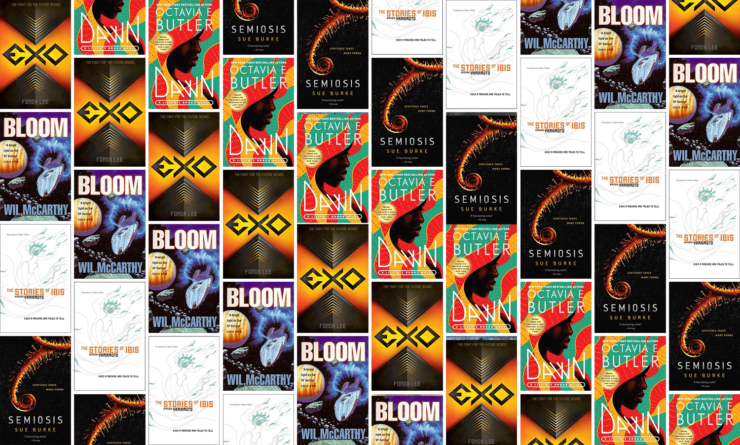Humans are accustomed to seeing ourselves as the rulers of creation, apex beings with the right to rearrange the world for our convenience. For many people this is a central tenet of faith, little challenged by the occasional pandemic or environmental collapse. SF authors, however, are willing to consider that this just might be wrong. Many works have explored what it would be like if we were one day to discover that superior entities now ruled our world. Humans would be domestic animals, mere puppies of Terra…
Consider the following five works that challenge human supremacy.
Lilith’s Brood (Dawn, 1987; Adulthood Rites, 1988; Imago, 1989) by Octavia Butler
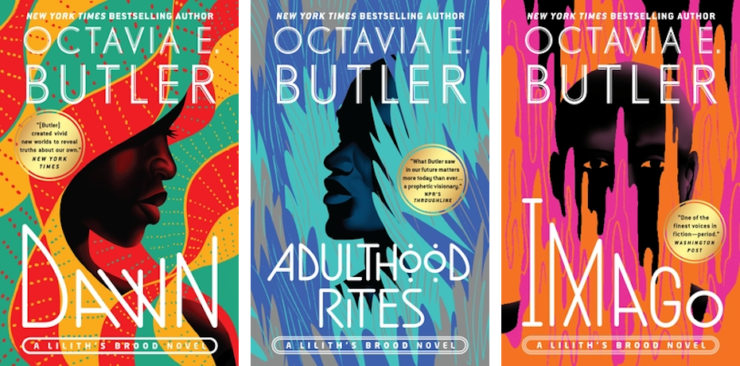
Not content to develop weapons of mass destruction and the means by which they could be delivered, humanity then proceeded to demonstrate their capacity to eliminate life on Earth by using those weapons. They were successful beyond their wildest nightmares. There are but a handful of survivors, who see no possible future. All they can do is wait for death.
One such survivor, Lilith Iyapo, is astounded to wake two and a half centuries later on an alien spacecraft. The Oankali happened upon dying Earth. They just happen to be masters of biotechnology. While quite aware of humanity’s inherent shortcomings, the Oankali nevertheless believe something of value can be salvaged. The surviving humans are returned to a restored Earth as part of the grand Oankali design.
Humans soon learn that while the Oankali serve a greater good, it is an alien greater good. Humanity has been saved…for now. This momentary respite is a temporary measure to grant the time to use humanity’s raw material to create something new and (as far as the Oankali are concerned, far superior). Once the hybrids are created, there will be no need for the inherently suicidal human species.
***
Bloom (1998) by Wil McCarthy
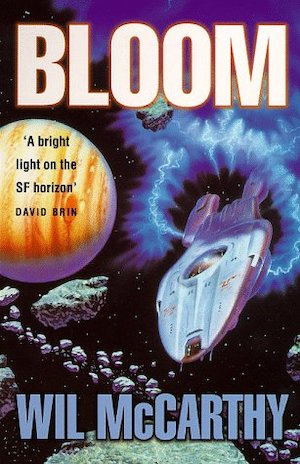
Visionary humans created technogenic life, which they dubbed Mycora. Then they lost control of it. Mycora escaped the labs and factories, then spread across the Earth and the inner Solar System. Humans lucky enough to reach regions too cold to support Mycora—the Asteroid Belt, Jupiter’s moons—survived. Everyone and everything else was consumed in the Bloom.
In 2106, journalist Strasheim is recruited to document the voyage of an explorer ship, the Pasteur. It will undertake a survey of the Inner System, now consumed by the Bloom. The ship has been constructed with advanced defenses that should keep Mycora at bay…but it is nonetheless an extremely hazardous mission.
What Strasheim doesn’t know (but eventually learns) is that the mission’s true purpose is far different from that given as cover story.
***
The Stories of Ibis (2010) by Hiroshi Yamamoto
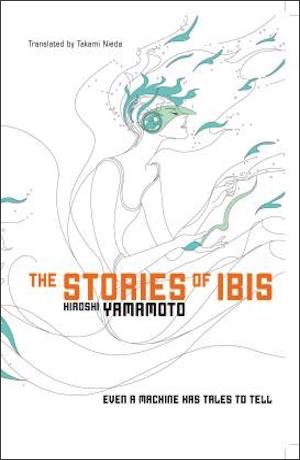
If asked, Storyteller would explain that there is a simple reason humans have been reduced to a few million survivors while robots rule the world. The robots overthrew humanity. The current crop of humans must descend from survivors of a terrible vengeance. Facts that would undermine this version of history (such as the odd robot custom of shipping food they do not need by means easily hijacked by humans) are best ignored.
Captured by the ancient robot Ibis, Storyteller could be forgiven for expecting the worst. But Ibis has no interest in mistreating a member of an endangered species. Instead, the robot simply wants an audience for a series of tales, which taken together will explain how Ibis and her artificial companions went from servants to Earth’s rulers.
***
Exo (Exo, 2017; Cross Fire, 2018) by Fonda Lee
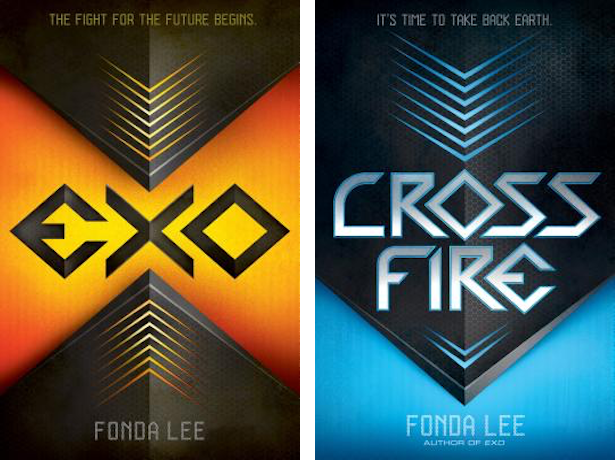
Concerned for Earth’s well-being should other, less well-meaning aliens discover and conquer it, the alien zhree, having discovered Earth, proceeded to conquer it. Despite mass casualties due to humanity’s misguided reluctance to be absorbed as a minor Mur Commonwealth colony world, everyone agrees that in the long run, conquest was the best thing that could have happened to Earth. At least, Earth’s Mur overlords agree that it was, and isn’t that what matters?
West America’s Prime Liaison Reyes is loyal to the Mur Commonwealth. So is Reyes’ cybernetically enhanced son Donovan. This is not merely because of the status and power the Mur confer on loyal colonials. It is because the Mur Commonwealth is all that stands between Earth and the Mur Commonwealth’s merciless, rapacious Rii cousins. Better Mur Commonwealth paternalism than to be consumed as raw materials for the Rii.
Nevertheless, some humans persist in pursuing Terran independence, a struggle into which Donovan is quite reluctantly dragged. The effort seems Quixotic. Should the Terrans somehow succeed, the results could be apocalyptic.
***
Semiosis (Semiosis, 2018; Interference, 2019) by Sue Burke
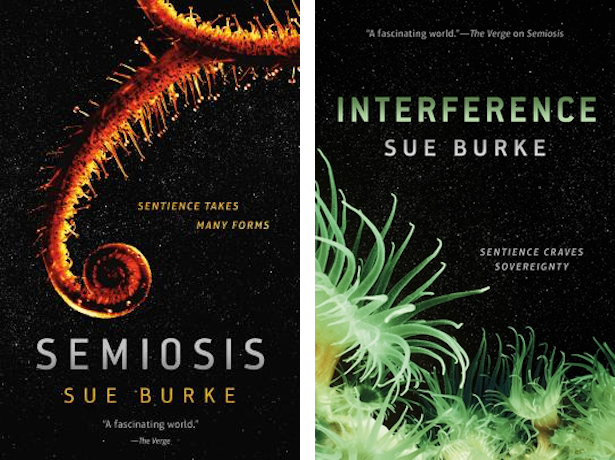
Frustrated with an Earth seemingly unwilling to deal with social decay, pollution, destructive industrial policies, and endemic conflict, a shipload of idealists set out for HIP 30756. Many decades later they rouse from hibernation to discover they are in orbit around HIP 30815. Having little choice in matter, they settle HIP 30815’s garden world, which they name Pax.
Had the settlers had the time for a comprehensive survey, they might have discovered before it was too late that while Pax does not have humanoid overlords, it does have overlords of a kind humans are ill-equipped to recognize. At least at first. After it is far too late, the dwindling human population belatedly comprehends that they have become pawns in a war between two factions of Pax’s true masters. Nothing for it but to choose a patron and hope for the best. And try not to think about what would happen if one of Pax’s rulers made its way to Earth….
***
Many, many authors have tried their hand at this subgenre. I can think of dozens of examples offhand and I am sure you can think of hundreds more. The comments are, as ever, below.
In the words of Wikipedia editor TexasAndroid, prolific book reviewer and perennial Darwin Award nominee James Davis Nicoll is of “questionable notability.” His work has appeared in Publishers Weekly and Romantic Times as well as on his own websites, James Nicoll Reviews and the Aurora finalist Young People Read Old SFF (where he is assisted by editor Karen Lofstrom and web person Adrienne L. Travis). He is a four-time finalist for the Best Fan Writer Hugo Award and is surprisingly flammable.










